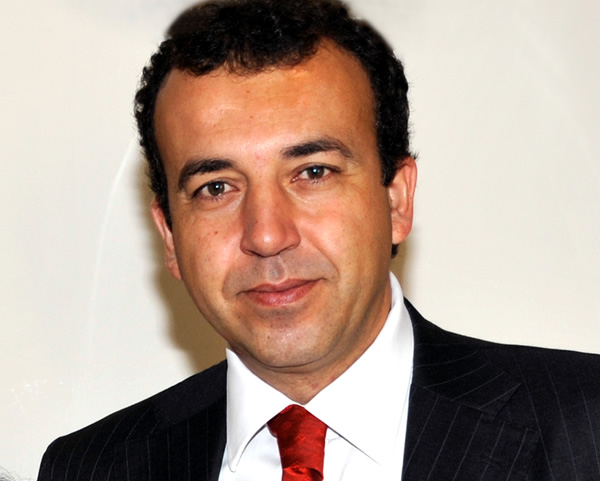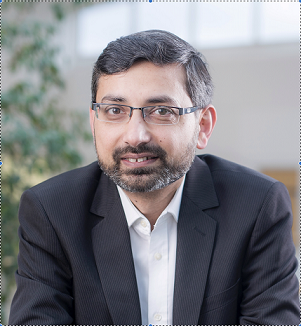keynote
Keynote 1
Title: Big Data, Machine Learning, Data Science for Traffic Monitoring and Analysis
Abstract: Network Traffic Monitoring and Analysis represents a key component for network management to guarantee the correct operation of large-scale networks such as the Internet. As the complexity of Internet services and the volume of traffic continue to increase, it becomes difficult to design scalable and powerful solutions to support the monitoring of the liveness of networks. Applications such as traffic classification and policing require real-time and scalable approaches. Anomaly detection and security mechanisms require to quickly identify and react to unpredictable events while processing millions of heterogeneous events. At last, the system has to collect, store, and process massive sets of historical data for post-mortem analysis. Those are precisely the challenges faced by general Big Data approaches: Volume, Velocity, Variety, and Veracity. Thus Network Traffic Monitoring and Analysis qualifies for adopting big data approaches to understand what is going on in the Internet. In this talk, I’ll mainly focus on approaches and technologies to face the network monitoring and analysis process, discussing the adoption of Machine Learning based analytics and Data Science approaches specifically designed to answer both simple and complex questions Internet providers face everyday. I’ll present the lessons learned after more then 20 year of study in this area, and challenges that are still open.
Speaker: Marco Mellia, Politecnico di Torino (Italy)

Bio: Marco Mellia is Full Professor in the Electronics and Telecommunications Department at Politecnico di Torino. After spending 1 year in Carnegie Mellon University, he visited the Sprint Advanced Technology Laboratories, Cisco Systems, Narus Inc in the Bay Area. He collaborated with several key players in the industry and coordinated European Projects, in the area of traffic monitoring and cyber-security system design. His research interests are now in traffic monitoring and analysis, and in applications of Big Data and Machine Learning techniques for traffic analysis, Cybersecurity and network monitoring. He has co-authored over 250 papers, holds 10 patents, and co-funded Ermes Cyber Security, a startup providing Machine Learning solutions for online privacy protection. He was awarded the IRTF Applied Networking Research Prize, and obtained several best paper awards. He is Area Editor of ACM CCR, part of the Editorial Board of IEEE/ACM Transactions on Network and Service Management and Elsevier Computer Networks.
He is now the director of the SmartData@PoliTO center which aggregates more than 50 experts in Big Data and Machine Learning investigating Data Science approaches in different areas.
Keynote 2
Title: Back to the Future: Hardware-specialized Cloud Networking
Abstract: Since its inception, Cloud Networking (and the relevant Network Function Virtualization trend) has been based on the assumption that network processing tasks originally performed by dedicated hardware appliances should be converted into software running on commodity hardware. However, emerging mediarich and network-intensive applications come along with, at the same time, throughput requirements which are challenging for software functions, as well as latency requirements which mandate for decentralization towards the edge. In this talk we posit that recent trends in fully programmable hardware platforms specialized for high-speed packet processing, and their relevant leap of orders of magnitude with respect to the same processing on commodity CPUs, appears not only a way to address the emerging applications’ requirements, but also appear to be a compelling way to address horizontal scaling limitations deemed to affect edge cloud deployments.
Speaker: Giuseppe Bianchi, University of Rome Tor Vergata (Italy)

Bio: Prof. Giuseppe Bianchi is Full Professor of Networking at the University of Roma Tor Vergata since 2007. His research activity includes wireless networks (his pioneering research work on WLAN modeling and assessment has received the ACM SigMobile 2017 Test-Of-Time award), programmable network systems, privacy and security, traffic modeling and control, and is documented in about 230 peer-reviewed international journal and conference papers, accounting for more than 16.000 citations (source: Google Scholar). He has coordinated six large scale EU projects, and has been (or still is) editor for several journals in his field, including IEEE/ACM Trans. on Networking, IEEE Trans. on Wireless Communications, IEEE Trans. on Network and Service Management, and Elsevier Computer Communications.
Keynote 3
Title: How future networks will become proactive? - Machine learning to solve a pertinent engineering challenge.
Abstract: The cellular network have long been configured and optimised reactively by identifying events and triggers and readjusting the operation of the cellular system. Our research is paving the way to make a step change by introducing proactive techniques to pre-emptively trigger actions that will make the networks more agile in adapting to changing demands of service and quality of experience. With the advent of ultra-dense deployment of networks, we need to use such mechanisms to schedule multi-level sleep modes of cells, mobility management as well as joint RAN-backhaul optimisation from efficiency perspective. As a use case, we will focus on the energy efficiency aspect covering the fundamental framework for the evaluation of energy efficiency and the state of the art as well as futuristic approaches to achieve energy efficiency.
Speaker: Muhammad Ali Imran, University of Glasgow (UK)

Bio: Prof. Muhammad Ali Imran received his M.Sc. (Distinction) and Ph.D. degrees from Imperial College London, UK, in 2002 and 2007, respectively. He is a Professor of Communication Systems in University of Glasgow, Vice Dean of Glasgow College UESTC. He is an Affiliate Professor at the University of Oklahoma, USA and a visiting Professor at the 5G Innovation Centre at the University of Surrey, UK. He has led a number of multimillion-funded international research projects encompassing the areas of energy efficiency, fundamental performance limits, sensor networks and self-organising cellular networks. He also led the physical layer work area for 5G innovation centre and was the faculty lead for “Engineering for Health” programme at Surrey. He has a global collaborative research network spanning both academia and key industrial players in the field of wireless communications. He has supervised 40+ successful PhD graduates and published over 400 peer-reviewed research papers including more than 100 IEEE Journal papers. He secured first rank in his B.Sc. and a distinction in his M.Sc. degree along with an award of excellence in recognition of his academic achievements conferred by the President of Pakistan. In addition to 8 Best Conference Paper Awards in international conferences, he has been awarded IEEE Comsoc’s Fred Ellersick award 2014 and FEPS Learning and Teaching award 2014 and twice nominated for Tony Jean’s Inspirational Teaching award. He is a shortlisted finalist for The Wharton-QS Stars Awards 2014, Reimagine Education Awards for innovative teaching and VC’s learning and teaching award in the University of Surrey. He is a fellow of IET, a senior member of IEEE and a Senior Fellow of Higher Education Academy (SFHEA), UK.
